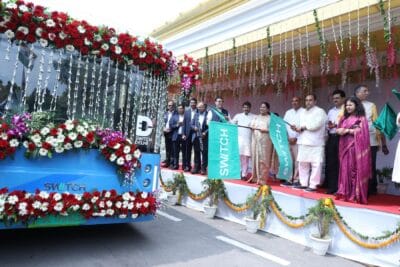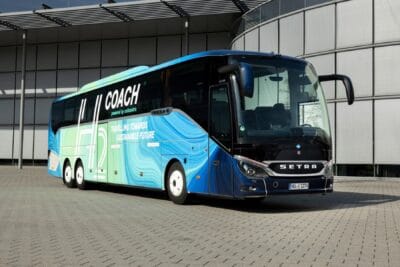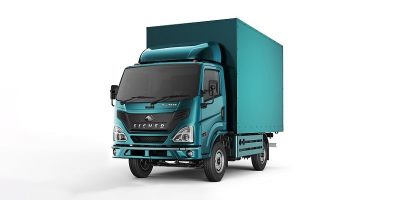KleanDrive to electrify 30 First Bus double deckers
The conversion process will take place at First Bus subsidiary Ensignbus’ facilities in Purfleet. There, they will remove diesel components from the vehicle and fit a battery-electric driveline inside the existing engine bay. This will accompany a new KleanDrive drivetrain, 352kWh of LFP batteries from CATL (324kWh usable), Voith Electrical Drive System propulsion, plus a refreshed internal layout for ease of maintenance. Overall the converted buses have a claimed range of 195 miles at 50-per cent passenger occupancy, while the diesel components will be recycled and reused elsewhere in First Bus’ Streetdeck fleet of legacy diesel buses.
In terms of the agreement: it will begin with the conversion of a single pilot vehicle. If it’s successful, First Bus will roll out the programme more widely to an additional 30 vehicles. Last year, First Bus invested £1 million in KleanDrive, which provides repowering technology for diesel buses and trucks. Andrew Jarvis, MD at First Bus, said: “We are impressed with KleanDrive’s engineering quality and their overall solution. They offer a very neat package, making installation and maintenance easier to complete, which is vital for us to get the converted buses out on the roads, serving our customers in the shortest time possible.”
Jarvis continued: “For us as an operator having a modular drivetrain, enabling the repowering to be done at our premises saves time, money and carbon emissions, while empowering our technicians to work on the vehicle for routine maintenance after conversion.”
KleanDrive founder Joe Tighe added that the partnership with FirstBus “is how we see the future of repowering buses – with KleanDrive providing a world-leading, model-specific modular e-drivetrain and the body and chassis work carried out by experienced specialists like Ensign.”
It’s the latest partnership between KleanDrive and a UK bus operator. In 2023, KleanDrive signed an agreement with the Scottish firm Lothian buses to repower 18 diesel-powered Volvo B5TLs using a similar method. At the time, the company stated that it takes only around two weeks to convert a bus to battery-electric power and that it is more cost effective than buying brand new electric buses.





0 Comments